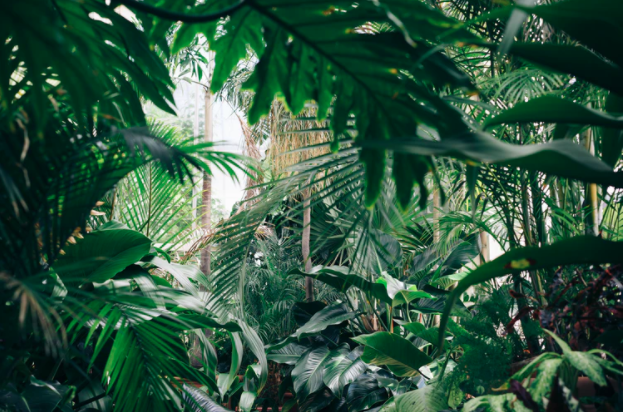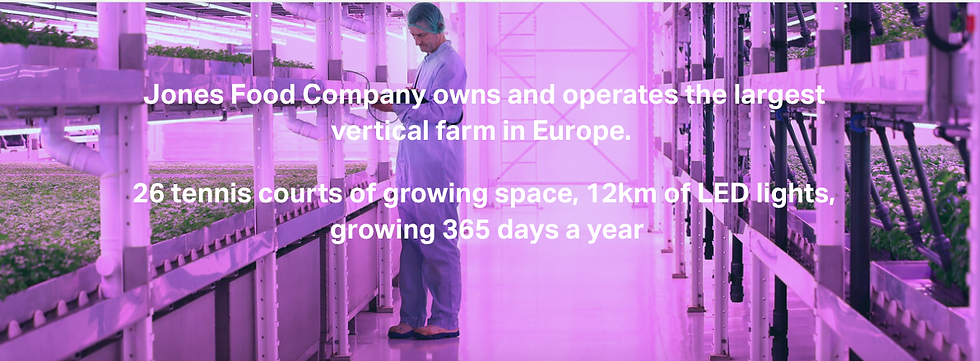The future’s bright – the future’s 50 shades of green actually
- Meyrick Consulting

- Nov 9, 2020
- 4 min read

Combining nature, A.I. and data may well intensify how we grow, what we eat and how much we harvest
Plants hold the key to solving the increasing demand for food. Not only that, growing with a carbon footprint that’s smaller than a size 12 work boot is also a key consideration. Using familiar and not so familiar plants, tech and horticultural expertise a quiet revolution is taking place.
I’ve written about vertical farming before
However, I’ve never investigated aquatic vegetables but being keen to leave no stone unturned I thought it was time to see just what the future of protein might look like.
Fancy a duckweed sandwich?
A start-up in Israel is getting extremely excited at the thought of having found a protein source without the high carbon cost usually associated with hooves and tails. They think a transformation in what we eat is just around the corner using an ingredient that’s simplicity itself to grow. What is it? Duckweed.

No, we won’t be skimming our garden ponds for breakfast
This duckweed variant is called Mankai and enjoys the reputation of being the smallest leaved vegetable in the world. Is it new? No. The Vietnamese understood its properties for years and utilised the leaves as a tonic when used in salads and soups.
Photo Philippe Gagné
But what is exciting is how Mankai can be added to food to boost nutrition
Even when food is actually highly processed Mankai can be used as a protein boost and Hinoman is the company that thinks it’s on to a winner. Ron Salpeter, CEO at Hinoman, has built a company around this little plant. He likes to call the company an ecosystem that facilitates the cropping of a sustainable food source throughout the year with a uniform output.
Hinoman has huge ambition and are hoping that they can play their part in shaping how we consume protein globally
This is not crazy talk as alternative proteins are 2020s topic of the year and this is just the beginning. With the race to feed the growing population intensifying and people spending more time making conscious choices about what they put into their mouths demand is both growing and shifting. Also, as medtech ramps up its offerings such as constant glucose monitoring, for example, then young people, especially, are wanting to know just what effect foodstuffs are having on their bodies. Not only is the focus micro but it’s macro too with true interest focusing on what food production is doing to the planet’s own health and wellbeing.

Another trend is ‘plant forward’
The aim of ‘plant forward’ is to up the number of fruits, nuts and vegetables people eat in a world that appears dominated by highly processed food. In addition, evidence is building that meat-based iron and protein is not enough to maintain a healthy body. Photo Chris Abney
This is not wishful thinking
Vegan based foods have been growing at a phenomenal rate and veganism and a focus on clean eating is no longer considered marginal at best or ‘cranky’ at worst. It seems a long time since the very first wholefood, vegetarian café Cranks’, opened on Carnaby Street, London back in 1961.
What is interesting is that Hinoman is not actually focusing on the vegan tribes but targeting processed foods
Mankai is a superfood and it can be added to foodstuffs that are anything but nutritional nirvana. Mankai will deliver protein, iron, vitamin B12, calcium, and other nutrients. In addition, these nutrients won’t just exit the body fast but will make a significant contribution to overall health. It’s quite a claim but based on historic claims when Mankai was just something gathered from slow moving waters we are just streamlining old knowledge.

Mankai fits into the ‘personalised nutrition’ trend
We’ve seen how different weight loss diets suit some and not others. With the rise in allergens, pollutants and artificial environments personalised nutrition sounds like a step in the right direction. Certainly, an interest in buying more green leaves that are fresh and still growing is also becoming more popular. After all, research has demonstrated that nutritional value drops by about 10% every day once salad leaves are cut. If we can buy herbs and salads with roots intact it will make quite a difference to the ‘greens’ we eat.
Paul Challinor is a horticultural consultant and has assisted in setting up Jones Food Company in Scunthorpe,UK. You may be surprised to learn that this represents the largest vertical farm in Europe. Its main production is salads and herbs. It’s an interesting turnaround from the headlines we saw about the number of salad bags we ditch every year in the UK. Jones Food Company now produces more than 400 tonnes of greenery and Ocado has a 70% stake in the company.

This goes to show how agriculture and horticulture are joining forces and also becoming increasingly automated and technical. These are extremely exciting careers and there are many different strands within the industry, and I am proud to specialise in finding people to undertake these complex and highly specialised roles.
Vertical farming, growing underground and micro proteins is where high tech combines with horticulture and nutrition to create sustainable, superfoods. The future is bright, and it’s definitely 50 shades of green.





Comments